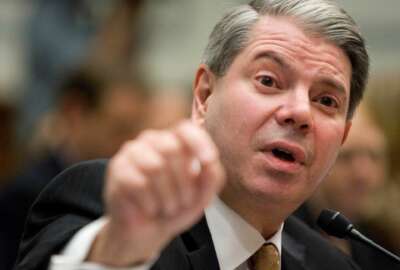
Baby boomers, thanks for your service, now leave
Should federal workers who grew up watching Howdy Doody or Star Trek be replaced? Senior Correspondent Mike Causey says baby boomers are in the cross-hairs..
Does the federal government need new blood? Should it strongly encourage workers at or close to retirement age to depart? Is a “changing of the guard,” as has been proposed by some experts, long overdue? And if early retirement incentives were offered, would people take them? Here’s the situation:
Good jobs are still available in this country. But good careers are much, much harder to find. One of the last, best, places for both is in the federal government. The retirement tsunami, the great brain drain first predicted in the late 1990s, still hasn’t happened. People are not retiring in the droves experts said would happen. Now, according to some, that — not the brain drain — is the real problem.
The Great Recession and technological changes have both destroyed and created many “good” jobs. As manufacturing dwindles in this country, places where someone with a high school diploma and a good work ethic could work for 30 years are fewer and further between. Many if not most of the major employers are retail operations not known for their employee perks.
The federal government, with all its drawbacks and critics, is still a very good career. Good pay, recession-proof (so far) job security and a lifetime inflation-linked pension at the end of the line.
In the private sector, a growing number of companies with pension plans are eliminating their defined benefit programs. Instead, employees are supposed to fund their own retirement with Social Security and their contributions (often unmatched by the employer) to a 401k plan.
A number of influential people, experts in their field, have noted the relative low levels of retirement from the government. And the fact that because of it, the average age of feds is increasing while the number of feds under age 30 is not. As in there are not enough of them. What to do? One proposal came in a recent Federal News Radio guest column: Want culture change? Time to push baby boomers into retirement. The column said “it is time for them,” the baby boomers, “to go.” It proposed asking the next president and the new Congress to offer early-out authority across the government.
The government now has authority to offer early retirement with or without a $25,000 buyout. In the past, early-outs without buyouts got few takers. Launched during the Clinton administration, they were part of a downsizing/outsourcing plan. The buyouts (worth about $13,500 after deductions) were aimed at lower-paid blue collar workers in Defense operations, and designed to protect newly hired women and minorities who otherwise would have been fired (RIF-ed) under the last-hired-first-fired seniority rule. $25K bought a lot more groceries than than it would now.
So two questions:
- Is government being held back by well-intentioned, but creaky boomers — 1946-1964 models — who grew up watching Howdy Doody and Star Trek, who some say are are less open to “information sharing and collaboration” than Millennials (1980-2001)?
- If so, and for many that’s a very big, iffy “if”, what would it take to convince the elders to leave?
Most importantly, to some, is would/should the early-out push apply to people, uh, people who write about the good, the bad and the ugly side of government?
Nearly Useless Factoid
In 1974, Dr. Seuss sent a copy of his book, Marvin K Mooney Will You Please Go Now! to the White House. The children’s author had crossed out every mention of “Marvin K. Mooney” and replaced it with “Richard M. Nixon”. At the time, the President was embroiled in the Watergate scandal.
Source: Wikipedia
Copyright © 2025 Federal News Network. All rights reserved. This website is not intended for users located within the European Economic Area.
Mike Causey is senior correspondent for Federal News Network and writes his daily Federal Report column on federal employees’ pay, benefits and retirement.
Follow @mcauseyWFED




